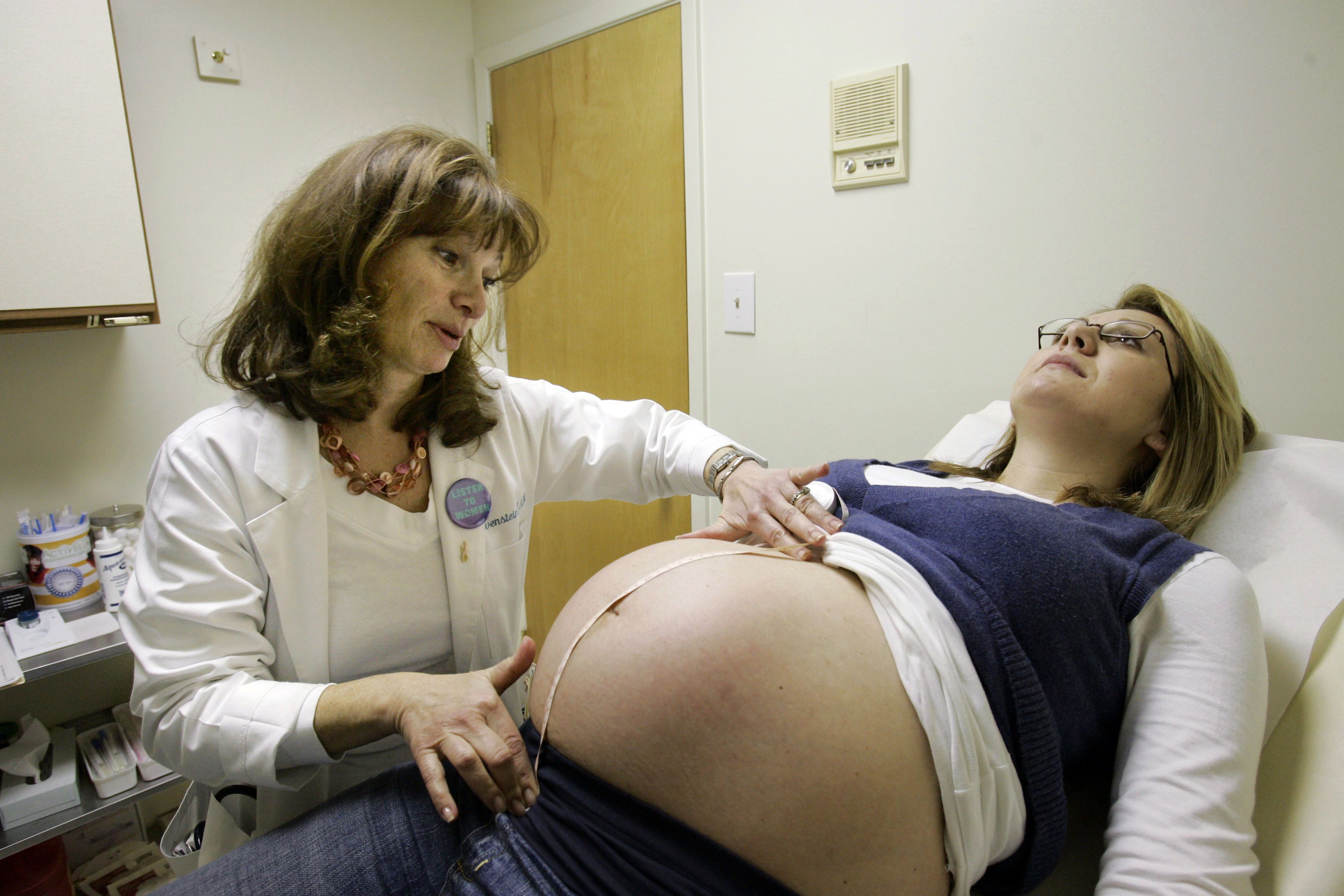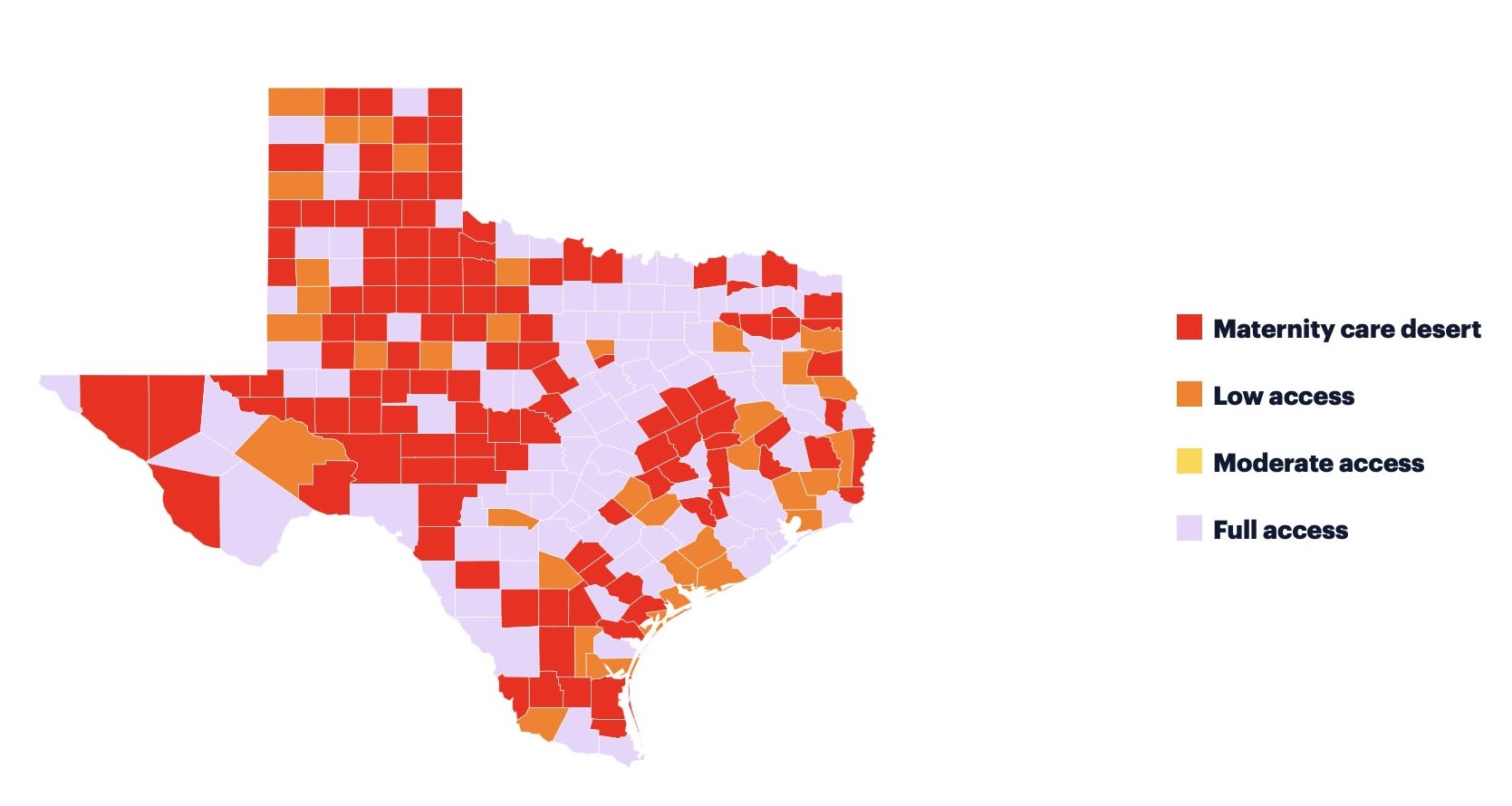Texas lawmaker proposes maternal health workforce campaign to address care shortages

ATexas lawmaker is addressing the critical need for maternal health care services with hopes to improve overall maternal health outcomes in rural and underserved areas.
Rep. Lalani Suleman, D-Fort Bend County, authored House Bill 514, which aims to bolster Texas' maternal health care workforce.
Section 1 of the bill would amend Chapter 32 of the Health and Safety Code by adding Section 32.022.
The section defines "maternal health care professional" and outlines the objectives of the workforce campaign, including increasing the number of providers, expanding training programs, and improving access to care in underserved areas.
Meanings defined by the bill
Maternal Health Care Professional
A professional who is certified or licensed in this state to provide maternal health care, including a doula and an individual who provides non medical support during pregnancy, labor, delivery, and the postpartum period.
Trauma-Informed Care Training
Specialized training to help maternal health professionals provide sensitive, patient-centered care, particularly in high-risk situations.
A March of Dimes report reveals the severe disparities in maternal health care access across Texas, with many counties classified as maternity care deserts—areas lacking hospitals, birthing centers, or maternity care providers.
The map shows large portions of the state in red, indicating areas with no hospitals, birthing centers, or maternity care providers.
Lalani's HB 514 seeks to address these gaps by recruiting and training more maternal health professionals, prioritizing underserved areas, and expanding access to essential services.
Click the map to read the March of Dimes report.
Click the map to read the March of Dimes report.
Voices on the Maternal Health Crisis
Experts and advocacy groups have highlighted the urgent need for improved maternal health care in Texas, emphasizing the consequences of provider shortages.
The Texas Academy of Family Physicians
"Over 47% of Texas counties lack obstetrical care services entirely, far exceeding the national average of 33%. The consequences of this are stark: rural mothers face higher rates of inadequate prenatal care, long travel times to maternity facilities, and poorer health outcomes for both mothers and infants."
"Dozens of rural Texas counties have no primary care doctors, no hospitals, no pharmacies. Many Texans live more than an hour from basic medical care. And some border communities have so little health care that U.S. citizens cross over into Mexico to get it."
"4.6% of women in Texas had no birthing hospital within 30 minutes. In rural areas across Texas, 28.4% of women live over 30 minutes from a birthing hospital compared to 3.8% of women living in urban areas. Women living in maternity care deserts traveled 4.5 times farther than women living in areas with full access to maternity care in Texas."
HB 514 has been referred to the House Subcommittee on Disaster Prevention & Women’s & Children’s Health. If passed, the executive commissioner of the Health and Human Services Commission would be required to adopt rules for implementing the campaign as soon as practicable after the bill’s effective date.


